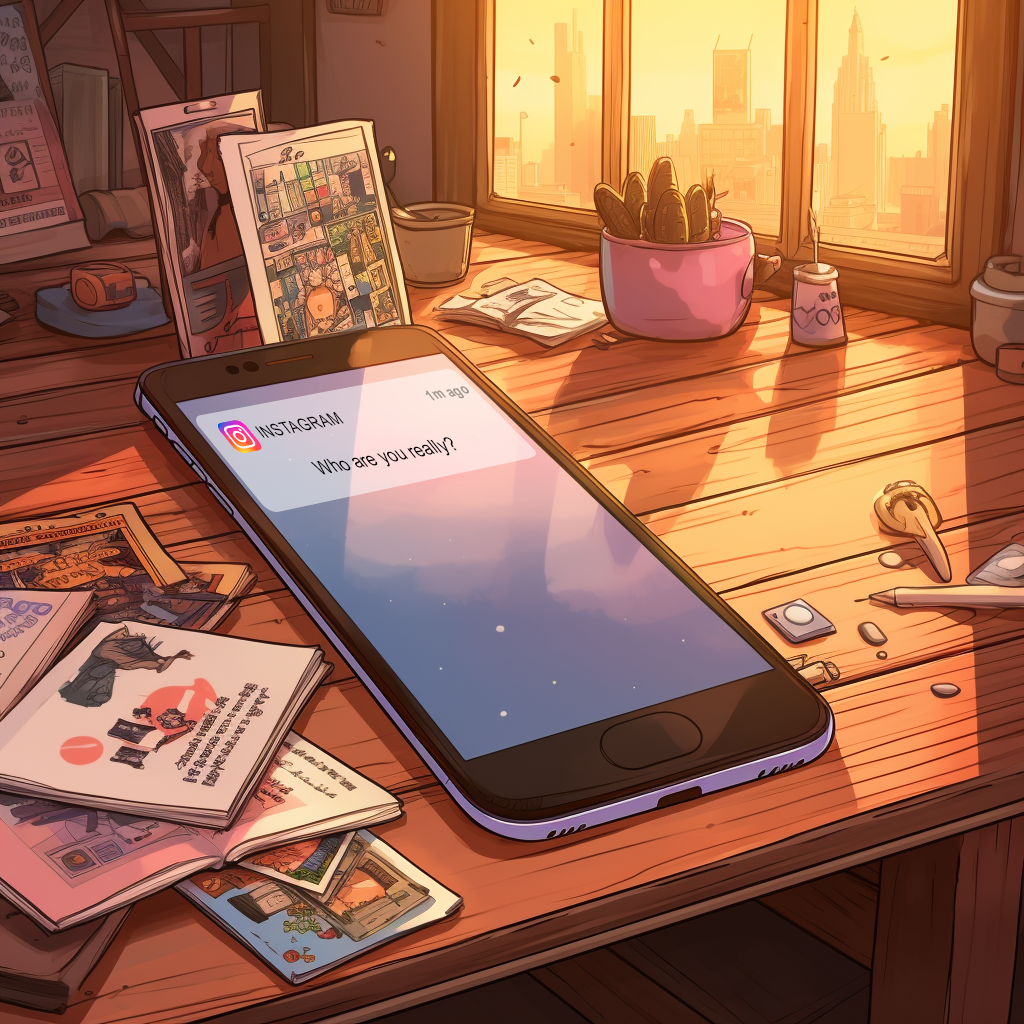
Social media can be a blessing or a curse. It has led to the loss of identity for many; a constant bombardment of images and posts depicting a perfect, non-achievable life, and quick access to flaw-fighting filters used on a daily basis, can lead one to feel inadequate, anxious, and depressed, as well as developing a distorted sense of self. This article explores themes of how social media can cause the loss of one’s true identity; it will discuss the potential for adverse effects on a user, including dysmorphia, cyberbullying, and the rising concern of psychological and physiological changes that can impact the Muslim identity.
Identity: the condition or fact of being a specific person or thing; individuality.1
Loss: the fact of no longer having something or having less of it than before.2
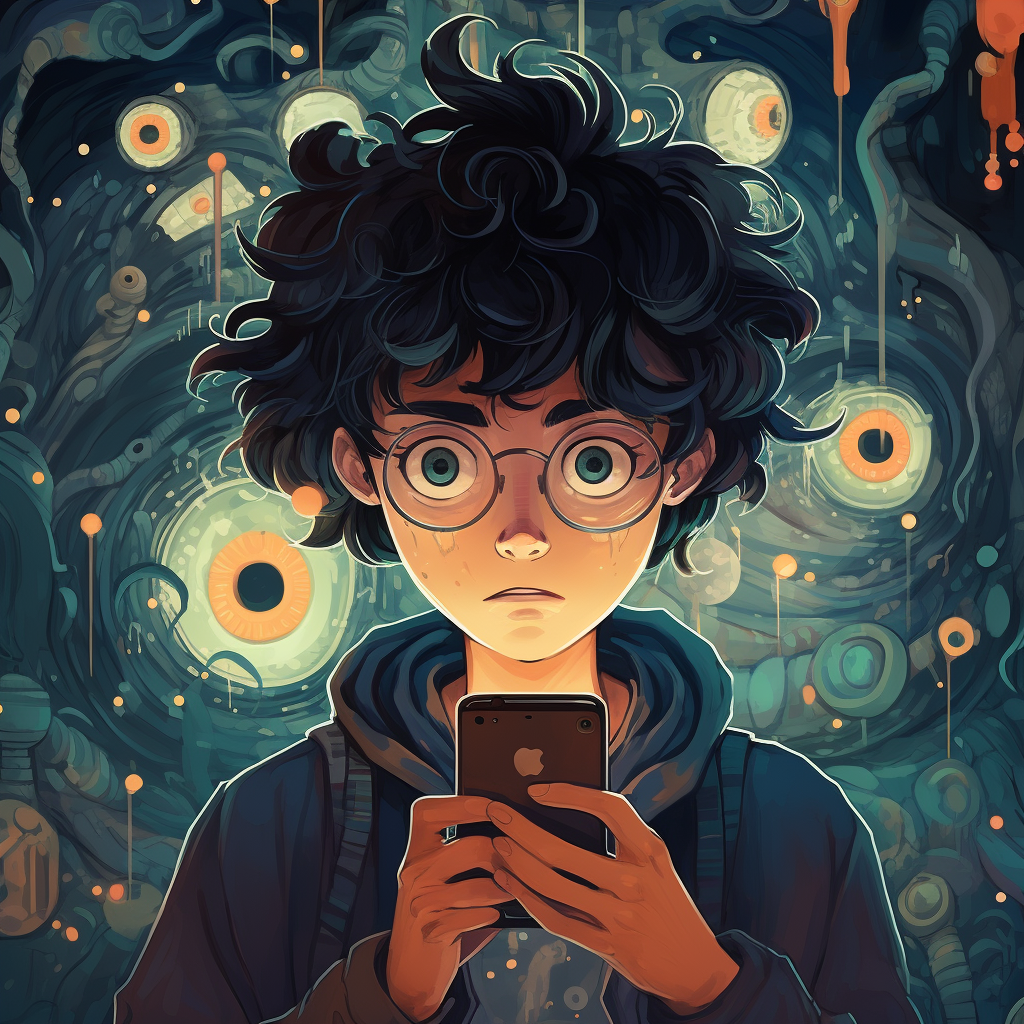
If we are to talk about losing one’s identity, then we must address the concept of possessing an identity first. As a Muslim, one’s core identity is believing in, and trusting one God, Allah, and believing in His Prophet, Muhammad (peace be upon him). The high-level purpose and identity of a Muslim is to earn God’s happiness, work to live and embody prophetic values of peace, knowledge, and philanthropy in one’s personal life.
‘So remember Me, I shall remember you’3
Having a duty of being God’s representative on this earth, one must remember their higher purpose, to worship and remember Allah daily, support those in need, and be grateful for His blessings on the good days, as well as the bad.
Advancement of technology as a favour of Allah
‘And if you want to count the favours of Allah, you will not be able to number them all. Surely, Allah is Most Forgiving, Ever-Merciful.’4
The technology of today is nothing short of phenomenal. We have seen the development of devices like smartphones, tablets, and laptops to a degree that one has access to everything in terms of knowledge, news, or answers at the palm of one’s hands. A Muslim will attribute this as one of the many blessings and favours of God, and one would strive to remember this while making use of it.
Information can be accessed from around the world, one can shop and pay for goods and services without ever having to leave home. Devices are becoming increasingly powerful and sophisticated, with features that were once only available on a desktop computer now being available on something that fits in a pocket.
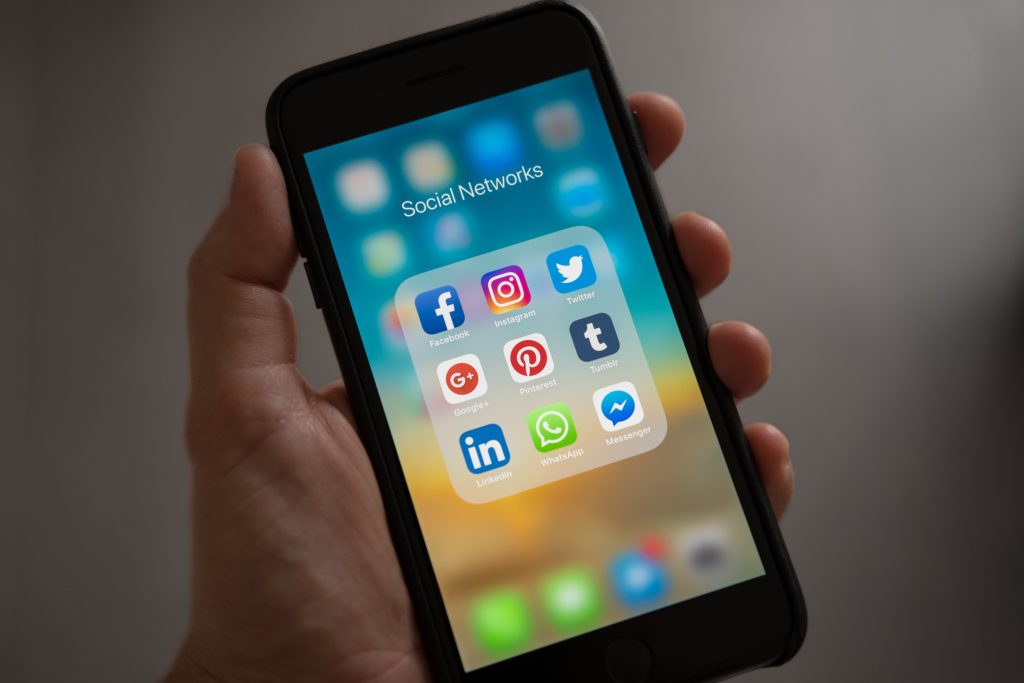
Greater affordability means every kind of person, regardless of age, gender, education, nationality, ethnicity, or religion has access to knowledge, news and information at their fingertips. Even with access to various resources, there exists a gap in self-understanding.
This issue remains across all disciplines of knowledge and learning, even the circles of learned Muslim scholars as mentioned by Mawlana Jalāl al-Dīn Rūmī (رحمه الله) says on the matter:
‘In this same way, the great scholars of the age split hairs on details of all matters. They know perfectly and completely those sciences that do not concern the Soul. But as for what is truly of importance and touches us more closely than any- thing else, namely our own Self, this your great scholars do not know. They make statements about everything, saying, ‘This is true and that is not true. This is right and that is wrong.’ Yet, they do not know their own Self, whether it is true or false, pure or impure.’5
Advancement of this technology has led to new social media platforms being created and features within them that have completely changed the way one communicates and interacts with others.
In the context of the modern day, and in light of what it means to possess a Muslim identity, we need to identify the dangers, challenges and risks of losing one’s identity. A modern-day adage often quoted eloquently puts this challenge forward:
‘Aim to live in this world without allowing the world to live inside you, because when a boat sits on water it sails perfectly, but when water enters inside the boat, it sinks.’6
The upsurge of social media usage has led to the birth of psychological disorders affecting users both in their outward, zaahir7, and inward, baatin8, states. A study saw users seeking status and popularity online, or those that utilise social media for comparison in relating their life to others, tend to experience negative psychological outcomes.9
Social Media Dysmorphia
‘Snapchat dysmorphia’, ‘Instagram dysmorphia’ and ‘TikTok brain’ are some up-and-coming phrases used widely in context to this subject. Snapchat and Instagram dysmorphia are underpinned by the social media apps and characterised by the need for app users to heavily change one’s online image, and how one presents themselves to the outward world, often using filters and editing tools that are easily accessible in the app. This leads to a contorted view of reality, dissatisfaction with one’s own looks and appearance, and a disconnect to the outward image of the person.
Although social media dysmorphia is not formally classified as a psychological disorder, it can amplify and lead to body dysmorphic disorder, which is ‘a mental health condition where a person spends a lot of time worrying about flaws in their appearance. These flaws are often unnoticeable to others.’10
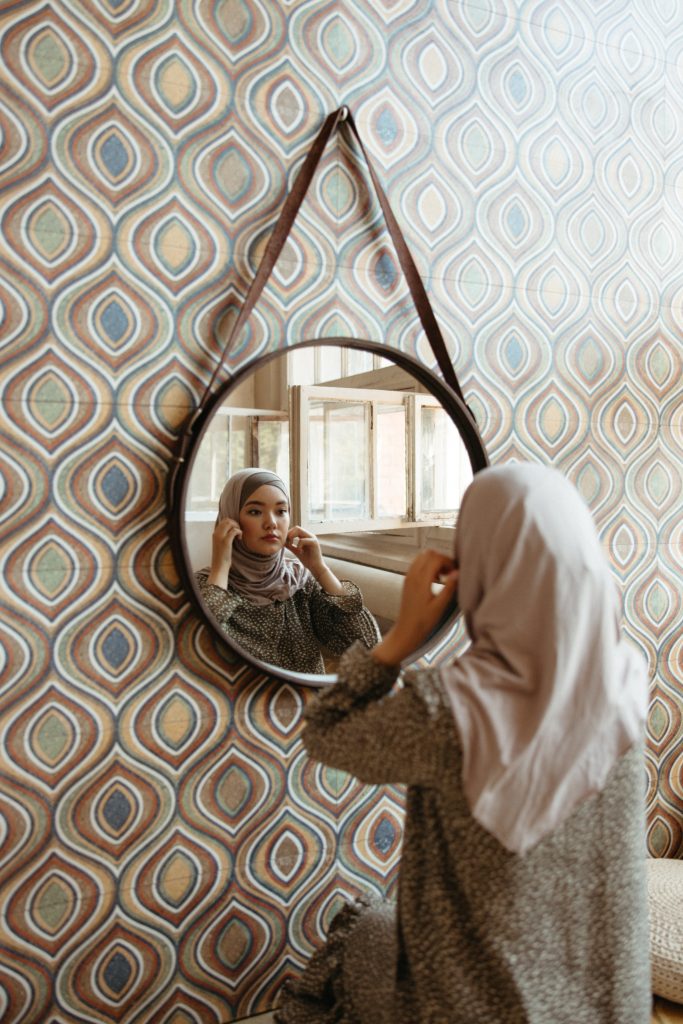
If we turn attention to one’s inner state, the baatin11, there can also be significant implications. ‘TikTok brain’ is another term being used in the social media world, often used to describe physiological changes that can occur in one’s brain due to excessive time spent on TikTok. TikTok delivers short-form video content that is well-known for its addictive nature. The changes in a user can include attention deficit, difficulty concentrating, and a decreased ability to think critically.12
One should also be mindful that social media fans the flame of cyberbullying, and can lead to a detrimental outcome. A study found that there is an increased number of suicides due to cyberbullying13 so the impact can be deadly.
241,791 young people in the UK were referred to the National Health Service for mental health help in the first three months of 2022 – half the total number of people referred in 2021.14 The alarming increase in mental health issues and suicide within younger demographics can be attributed to after-effects of daily social media use.15
It’s important to remember the impermanence of this world. ‘So did you think that We had created you in vain (without any purpose) and that you would not return to Us?’16
Impact on Muslim Identity
Muslims are encouraged to gain knowledge, think critically, and develop oneself intellectually. One is encouraged by Allah Almighty and the teachings of the Prophet SAW to utilise their time to the fullest potential possible. Self-growth is encouraged by the Prophet SAW through the concept of Islah (betterment) of oneself. Nawwas bin Sam’an Al-Kilabi said:
“I heard the Messenger of Allah say: ‘There is no heart that is not between two of the Fingers of the Most Merciful. If He wills, He guides it and if He wills, He sends it astray.’ The Messenger of Allah used to say: ‘O You Who makes hearts steadfast make our hearts steadfast in adhering to Your religion.’ And he said: ‘The Scale is in the Hand of the Most Merciful; He will cause some peoples to rise and others to fall until the day of Resurrection.'”17

In order to implement the Prophetic concept of Islah, one must seek knowledge, work on truly understanding one’s religion, and ensure one is safeguarding one’s Iman (faith) at all times. One must consider one’s Iman akin to a precious jewel, requiring a safeguarding protocol, to ensure it remains unaffected by any outer source.
Today’s environment requires a layer of protection for the high-value jewel that is one’s Iman. One should not focus solely on outward appearance, but work on improving the whole self, through outward and inward cleanliness of character.
Social media dysmorphia and the ‘Tiktok brain’ phenomena has potential to be in direct conflict with a young practising Muslim. It can present concerns of a negative impact, not only on one’s mental health but one’s ability to truly practise and implement Islam authentically. If one finds themselves drawn into the online minefield of comparing appearance, counting likes, striving to achieve the unachievable, expecting instant reward, and getting results quickly, how would one find time to make a connection with Allah, and his Prophet SAW? How would one remain patient and steadfast on the life-long path of becoming a better, well-rounded, developed and practising Muslim? And how can one truly find oneself?
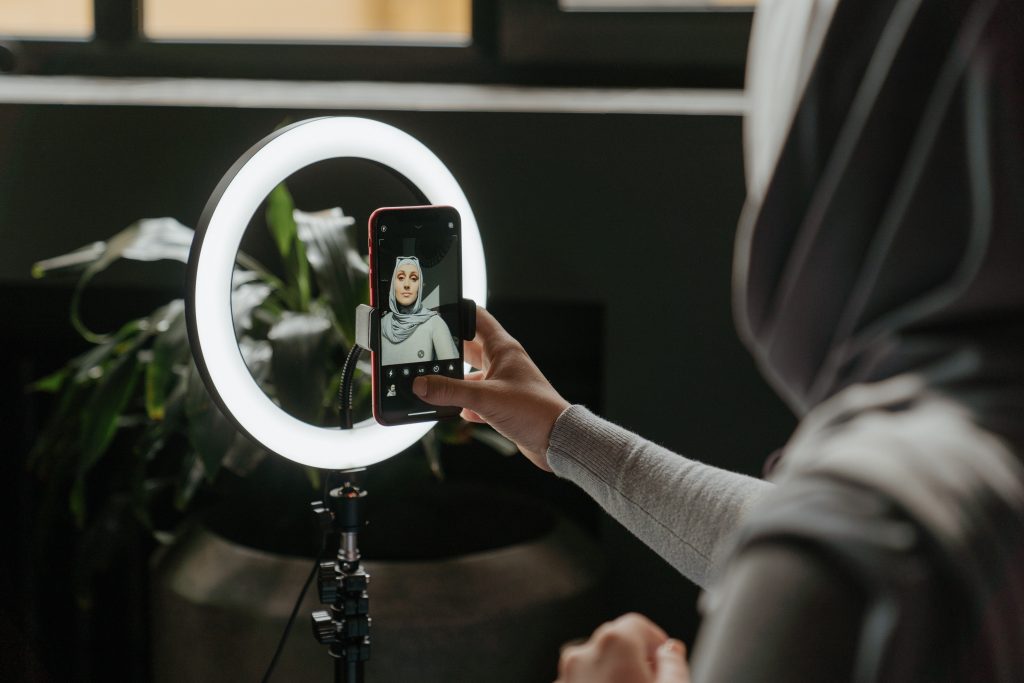
Unattainable beauty standards, uprising of influencer culture and a new brand of Muslim public figures with large followings, have made it difficult for younger Muslims to be able to decipher what is a part of the Islamic faith, and what isn’t, where guidance related to one’s faith should be taken from, and where it shouldn’t be taken from. There is a visible incline of young Muslims heavily affected by these blurring of the lines.
The unattainable beauty standards trend is explained by facial plastic surgeon, and former president of the American Academy for Facial Plastic and Reconstructive Surgery, William H. Truswell, M.D. He said, “We’re seeing more patients than ever before who are under thirty and want to start young with minor tweaks in order to forestall the need for larger procedures later.”18

There’s no question that social media is integral to daily life, and it is naive to think one can live in today’s world with zero form of contact to it whatsoever. A study found that 95% of teenagers use some form of social media.19 One may use it to stay connected with friends and family, to learn about the world, and to express oneself, but it is essential for one to understand what social media is, and more importantly, what it isn’t.
In the context of being a young Muslim, if one sees a person that looks like them with a large following, one must remember that this person is representing themselves only, and must separate the actions of the person from the commandments of Allah and the teachings of the Prophet SAW.
Live in the social media world; Don’t let it live within you
The keystone to understanding how social media can enhance, and not negatively impact one’s life, is for one to seek answers to the following questions.20
How do I make beneficial use of it?
Utilising social media to make one a better version of oneself should be high on one’s list of priorities. Developing oneself personally and professionally, networking, enhancing creativity, and learning about the community and world, sharing beneficial knowledge to others are all examples of beneficial use. Studies find that social media is associated with increase in creativity and innovation hence it could be a great tool for self-growth in individuals, if used optimally.21
What should I understand about it?
It’s crucial to realise the power of social media. Social media is associated with shorter attention spans and higher chances of developing anxiety and depression.22 It is known to be linked with lower levels of empathy in an individual and higher rates of narcissism.23
Studies indicate that one’s impact will vary subject to different factors -including daily usage time, type of social media being used, age of the user, and one’s personality and individual cognitive style. It’s vital that one is truly mindful about how their social media usage will have the potential for a loss of their true identity.
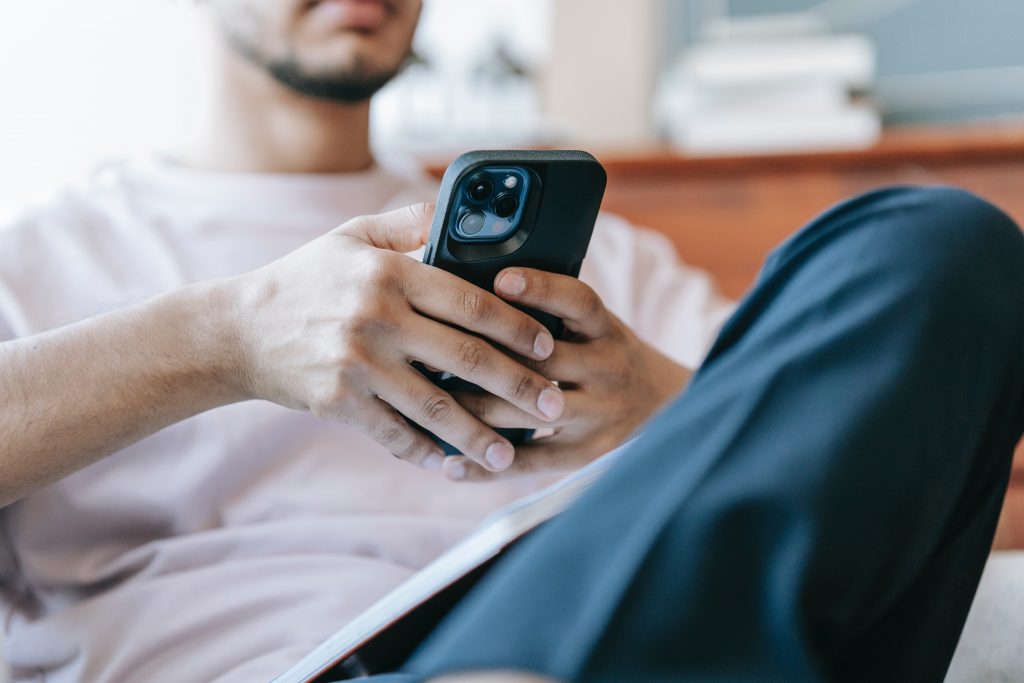
How can I remain in control of my usage?
A research centre found that since their 2014-15 survey, their recent survey conducted in 202224 showed TikTok usage has arisen; Facebook has dropped; but Instagram and Snapchat have grown.
It’s vital for young Muslims to categorise social media platforms and their usage for each, into useful and not-so-useful categories. One can align each platform in the context of one’s personal identity and values. Weighing implications of one’s intellectual development, mental health, and generally what is the best use of one’s time. Regular introspection of whether one’s identity as a person is being affected by using social media ensures one remains in control in the longer term.
It’s easy to get distracted in the social media world – one must bring it back to basics when it comes to what is the purpose of one’s life, and what is one’s true identity.
The first step to finding oneself is to understand oneself. Ask yourself – does the online activity one is engaged in, help, or hinder oneself, in terms of having an authentic identity as a Muslim? Is it being used as a vessel for gaining impactful, useful content, potentially drawing one closer to one’s faith? Or is it becoming a hindrance, and the reason for losing one’s true identity over time?
1 “Identity Definition and Meaning.” Collins English Dictionary, https://www.collinsdictionary.com/dictionary/english/identity
2 “Loss Definition and Meaning.” Collins English Dictionary, https://www.collinsdictionary.com/dictionary/english/loss
3 “Holy Quran Surah Al-Baqarah with English Translation.” Irfan-ul-Quran, Ch 2, Verse 152, https://irfan-ul-quran.com/english/Surah-al-Baqarah-with-english-translation
4 “Holy Quran Surah An-Nahl with English Translation.” Irfan-ul-Quran, Ch 16, Verse 18, https://irfan-ul-quran.com/english/Surah-an-Nahl-with-english-translation
5 Rūmī, Jalāl al-Dīn (ra), and A. J. Arberry. Discourses of Rumi: Fihi Ma Fihi. Kuala Lumpur: Islamic Book Trust, 2019, Page 32
6 “This beautiful quote by Imam Ali on detatchment quenches my anxiety” Medium
7 ‘Meaning of zaahir’ (Arabic term for outward state), Rekhta Dictionary
8 ‘Meaning of baatin’ (Arabic term for inward state), Rekhta Dictionary
9 Sherlock, M., & Wagstaff, D. L., Psychology of Popular Media, Vol. 8, No. 4, 2019; Cohen, R., et al., Body Image, Vol. 23, 2017
10 “Body Dysmorphia” NHS
11 ‘Meaning of baatin’ (Arabic term for inward state), Rekhta Dictionary
12 Wilmer HH, Chein JM. Mobile technology habits: patterns of association among device usage, intertemporal preference, impulse control, and reward sensitivity. Psychon Bull Rev. 2016;23(5):1607-1614
13 Bailin A, Milanaik R, Adesman A. Health implications of new age technologies for adolescents: A review of the research. Curr Opin Pediatr. 2014;26:605–19
14 Children & Young People Now, “Campaigners warn of ‘alarming’ rise in teenage suicides,” September 14, 2022
15 Meaker, Morgan. “How A British Teen’s Death Changed Social Media.” WIRED UK, 2022
16 “Holy Quran Surah Al-Mu-minun with English Translation.” Irfan-ul-Quran, Ch 23, Verse 115
17 Sunan Ibn Majah, 199
18 “Social Media Creating Unrealistic Expectations” American Spa
19 Pew Research Center, 2022, “Teens, Social Media and Technology 2022”, Survey conducted April 14-May 4, 2022
20 Quintana, Daniel S., Lara McKinley, Shane R. Jimerson, and Kelly-Ann Allen. Academics Guide to Social Media: Learn, Engage and Belong. Routledge, 2022.
21 Batool, S., and A. Rehman. 2017. “Impact of social media on creativity and innovation.” Journal of Business Studies Quarterly 8(2): 1-12
22 Primack, A. B., P. M. Greenfield, M. Michikyan, and L. Whang. 2015. “Association between problematic social media use and symptoms of depression and anxiety in college students.” Depression and Anxiety 32(10): 773-781
23 Turel, O., and A. Qayyum. 2017. “Social media addiction and narcissism: A moderated mediation model of self-esteem and self-efficacy.” Personality and Individual Differences, 110: 111-115
24 T. Sharot, C. R. Sunstein, How people decide what they want to know. Nat. Hum. Behav. 4, 14–19 (2020)
[ux_html]
[/ux_html]